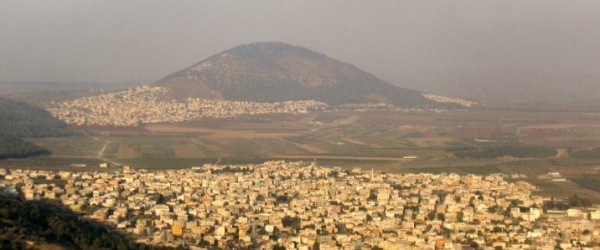
Among the members of the Pontifical Council for the Family who participated in the Dicastery’s recent Plenary Assembly were the spouses Naser and Amira Shakkour, from Israel. They gave their testimony.
Naser Shakkour says: «In Israel, only religious marriage exists, with civil effects, each according to the confession one belongs to. For us Catholics, it is regulated by Canon Law. There is a Court of Civil Justice for the family, linked to the churches, which recognizes the divorce of those who have received religious annulment and cleared the economic issues. Even women in difficult conditions, or who suffer violence or abuse in the family, can turn to the Court for help».
The average marital age of among Christians is higher than in other religions, among Jews and Muslims: most men are just under 30 years and most women are around 27 years old. On the average, there are less than two children in families with a fairly high level of education. «This, on the one hand, is a good thing; but, on the other hand, it is often a cause of separation from the rest of society. People, in fact, increasingly emigrate, especially to the United States, in search of work and greater achievement». In Israel, Jews, Christians and Muslims live together peacefully. «The Catholics are a minority, approximately 160,000 of the 7 million inhabitants, and they have identity problems. Nearly 50 per cent of them live in Jerusalem. Even in Christian schools, the history of Israel’s Christians is not studied; Christians are and feel that they are a minority on the outskirts of citizenship».
The major problem that Israeli Catholics decry is this sense of loneliness, even with relation to the Church as an institution. «Christian families have difficulty forming a network, sharing experiences, talking about common problems and finding solutions together. The Sisters and some Priests don’t speak the local language, Arabic. Sometimes, we enter as strangers into the monasteries. Some people choose names for their children that are not immediately identifiable as Christian». In this context —Shakkour declares—«for us, the Pontifical Council for the Family is like Mount Tabor, the place where we gather together as one Christian family, as brothers and sisters with the one Mother Church. The website of the Dicastery is in a certain way "our home". My wife and I, for example, connect to the site each day to read everything that is written there, the news about what is happening in other communities, the issues that are discussed, the problems, documents, studies of the expert, and we watch the video interviews. For us, this is very important, on the spiritual level, but also on a practical level, to guide us in everyday life, in the choices of daily life».
He explains: «I prepare for marriage many couples, who come from Jordan, Palestine and Israel. I realize that they lack reference figures, with which to grow in their marital experience. They don’t have spiritual guides, with whom they can talk about the daily problems in the family and so live in the light of the Gospel, and this although there are many teachers». In the region of ancient Galilee, where Jesus multiplied the loaves and the fishes, there is a beautiful mosaic, Shakkour tells us. «Jesus asks each of us: "What do you need?’"and then he distributes the bread and the fish. So, I consider my personal commitment of faith as a piece of bread that God’s Grace multiplies».